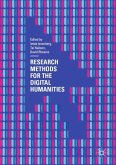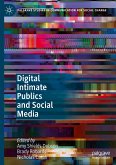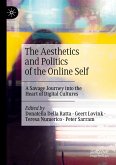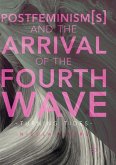This book offers a trailblazing account of postfeminist sensibility as a digital feeling that shapes how we understand the world around us. It explores how we feel in a world where the digital has become intertwined with our intimate relationships to ourselves and to others. The book develops a novel approach that draws on feminist theories of affect, emotion, and structures of feeling, to analyse the entanglements of the digital and the non-digital, and the public and the private, and to show how good feeling shapes a contemporary moment that often leads us back to normativity and reproduces systemic inequality. This is achieved through several different digital media spheres, including: the Instagram account Barbie Savior, #fitspo content, TikTok influencers and their Get Ready With Me videos, the archive of hot men on TubeCrush, and the intimacies of the internet cat, suggesting that each offers a snapshot of our current emotional landscapes.
Bitte wählen Sie Ihr Anliegen aus.
Rechnungen
Retourenschein anfordern
Bestellstatus
Storno








